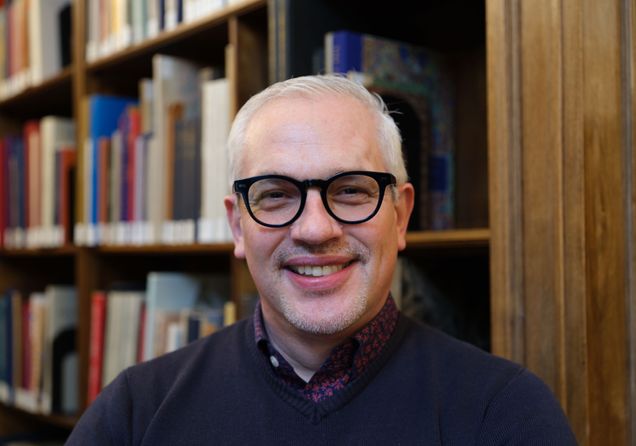Q&A with CISS Pilot Grant Recipient Dr. Eugenio Menegon
Dr. Eugenio Menegon teaches Chinese history and world history in the Department of History at Boston University, and was Director of the Boston University Center for the Study of Asia between 2012 – 2015. His interests include Chinese-Western relations in late imperial times, Chinese religions and Christianity in China, Chinese science, the intellectual history of Republican China, the history of maritime Asia, and Chinese food history. He has been a Research Fellow in Chinese Studies at the Katholieke Universiteit Leuven (Belgium), a Wang Post-Doctoral Fellow at Harvard University’s Fairbank Center for Chinese Studies, Boston University Humanities Center Junior and Senior Fellow, a Member of the School of Historical Studies at the Institute for Advanced Studies at Princeton, and Senior Fellow at the Institute for Advanced Jesuit Studies at Boston College, where he currently is an Affiliated Scholar. Learn more about Dr. Menegon below in a Q&A interview with CISS communications intern Lily Belisle.

Why does social science matter to you?
Social science matters because it provides a home within which I can work. History is a special kind of discipline, one that bridges the humanities and social sciences, pulling the best from two worlds. It examines its own well-worn methods sources from the past in an effort to explain patterns and phenomena in modern and pre-modern societies. At the same time, it also applies to past methods of historical sociology, anthropology, economics, and more. The social sciences are a powerful tool to explain humanity while also providing helpful solutions to history’s conundrums through their quantitative and theoretical approaches.
What is your research project about? What piqued your interest in this?
My project supported by CISS is the digital China Historical Christian Database (https://chcdatabase.com/), which examines how Christian missionaries and their native converts culturally spearheaded modern Chinese-Western relations. Historically, Christian missionaries set out with the intention of converting the Chinese. However, in doing so, they also introduced vast amounts of Western knowledge that have been preserved in lasting roots to our day. Some of the earliest modern hospitals and universities in China, for example, originated from this legacy. The CHCD project employs digital approaches to study the past, specifically the period between the years of 1550 – 1950. Thus far, there has been very little research done on such historical topics using advanced digital methods, and this database is very timely. The fact that it is 2022 and we’re only now beginning to do this kind of digital scholarship at BU shows an urgent need for change and innovation. We must acknowledge where we have come from if we seek to understand our identity and repair the strained relationship between China and the USA. A recent presentation in Italy with my co-investigator Dr. Daryl Ireland (STH) was titled “The Future of Sino-Western Relations is in Their Past,” precisely to signify the importance of revisiting the past US-China history of both engagement and misunderstanding as a bridge towards a better future.
What is the most compelling finding you’ve encountered thus far?
So far, it has been exciting to quantify data that has historically been so dispersed, particularly by visually representing many of the trends we find. The database we are currently creating visualizes historical agents, institutions, corporate bodies, and in the future also texts, as nodes, transforming bibliographic and biographic forms into a web of intersecting networks. Our team is the first to study such a vast collection of sources on Chinese Christianity, and it has been incredibly powerful to see a fuller picture of Chinese-Western relations.
How has the CISS funding affected your work?
As faculty members, we cannot conduct research alone—we need the support and assistance of students for our work to be possible. The Center has provided support for students, both undergraduate and graduate, and this is what matters the most. The Center’s funding has invited students to join us and practice using database research methods associated with the social sciences, but steeped in historical sources. It is imperative that students learn new ways of conducting research so that they are more marketable and well-rounded in moving on to professional endeavors down the road. For those who feel alone, CISS has created a community who will be there for them.
What do you hope your student research assistants will learn from this experience?
I hope our student research assistants will learn how to use and apply digital approaches when working within the discipline of Chinese studies and beyond. Additionally, I want them to come away with the ability to work in any type of team. Teamwork is so important because it allows students to professionalize themselves, affirming to them that they truly matter.